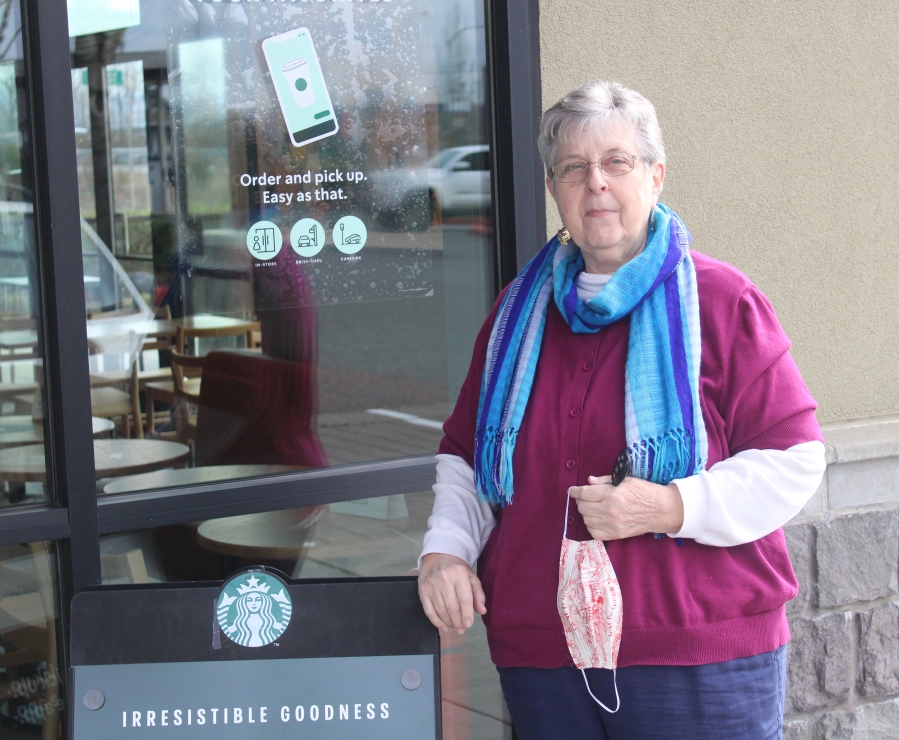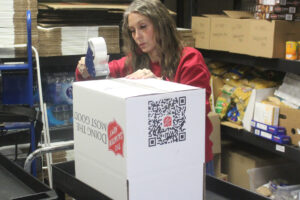A Washougal resident who has helped feed the area’s hungry for nearly a decade worries a new Starbucks corporate policy may divert food away from the local community.
For the past eight years, Pam Clark, the co-founder of the nonprofit ReFuel Washougal, an organization that serves weekly meals to hungry Washougal-area individuals and families, has led a volunteer group that collected unsold food from the Washougal’s Starbucks store and delivered the perishable items daily to local residents in need.
The volunteers’ effort came to a sudden end the second week of 2021, after the Starbucks Corporation directed its Clark County stores to donate their unused food items to Feeding America, the United States’ largest domestic hunger relief organization.
Now, Clark is speaking out in the hope that the Starbucks parent company might make an exception for the Washougal store.
“From what I understand, the Starbucks Corporation has been taking different regions and turning (their food donations) over to Feeding America. It just happened that this year our region was affected,” Clark said. “I was hoping that our store, because of the fact that it’s part of such a small community, could be exempt. Why is one (store) going to make that big a difference? The volume isn’t as high as some of the other stores, but it’s high enough to feed this community.”





